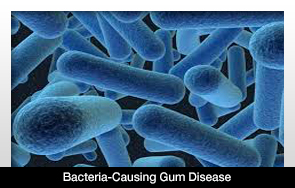 |
Teeth sensitivity is a common problem experienced by many people from time to time.
Teeth are covered by a layer of hard enamel that is tightly sealed by healthy gum tissue. The inner layer of the teeth is made of a softer layer with numerous microscopic nerve endings. If these nerve endings are exposed, or if the tooth becomes irritated, tooth sensitivity results.
Many people “deal” with sensitive teeth by ignoring the problem and not doing anything about it. The nature of human beings is to stay away from unpleasant experiences or events. We have all heard of people saying that their teeth are uncomfortable under certain circumstances and they simply avoid consuming those items that cause the discomfort. However, this practice does not allow outstanding problems to be addressed and usually leads to more complicated and uncomfortable situations.
Why are sensitive teeth a concern?
Usually, when a tooth is sensitive, it means that the tooth is mildly irritated. The sensation of sensitivity is the tooth’s way of letting us know that something is wrong.
More importantly, if you are experiencing sensitive teeth, this may mean that the nerve endings of your teeth are exposed. It could be an exposure of the nerves deep inside the tooth due to cavities (e.g. abscesses) or the exposure of the nerve endings on the outer surface of the tooth due to gum problems.
When should I seek help?
Teeth sensitivity is a clinical symptom that may indicate more troublesome dental conditions. One should consider getting professional help if:
- The sensitivity gets worse with time (e.g. gets more painful after a few days)
- The problem lasts longer with time (e.g. instead of a few seconds of discomfort, it becomes a few minutes of discomfort)
- The gums bleed after eating, brushing, or rinsing
- There are rough edges on the teeth, which may indicate failing fillings or chipped teeth
- The sensitivity does not go away after using a good quality toothpaste with desensitizing formula
- You have not visited a dentist for a long time.
What can teeth be sensitive to?
This is dependent on the cause of the tooth sensitivity.
If the problem is a leaking filling or a dental cavity, people commonly experience sensitivity to hot and cold food and drinks.
If the issue is receding gums, individuals may experience discomfort upon eating foods with certain acidic content, (e.g. citric fruits).
It is also not uncommon that the teeth are sensitive when chewing, which usually represents a more serious form of tooth sensitivity that may require more involved dental treatment.
Treatment
What kind of ingredients in toothpastes can help this condition?
If the sensitivity is not due to any dental problems (such as cavities) then using a desensitizing toothpaste will be helpful. The medicinal ingredients in these toothpastes could include:
- A chemical or physical sealer that seals off the surface of the teeth
- Chemicals that reduce the sensation of the nerve endings, and/or
- A chemical that improved the microscopic structural strength of the teeth.
The exact formulas differ from one toothpaste company to another, which also explains why some brands work better under certain conditions than the others.
What alternatives to toothpaste are there for treating sensitive teeth?
If continued use of sensitive teeth toothpastes does not seem to resolve the issue, it is important to see a dentist for a thorough dental check-up to diagnose the cause of the sensitivity. Once that has been determined, it would simply be a matter of getting the appropriate treatment for the condition.
Can aesthetic dental procedures such as veneers and teeth whitening result in tooth sensitivity?
Properly executed dental procedures should not cause teeth sensitivity. However, from time to time we have heard of people experiencing sensitivity after undergoing a teeth whitening procedure. Our experience has shown that these cases are usually the results of attempts to whiten the teeth beyond certain clinical limits. After all, nature dictates that there are limits to how pearly white our natural teeth could be. Trying to go beyond that limit usually requires some procedures that are more involved that whitening. The experience of the clinician plays a very important part in this situation.
Dr. Ansgar C. Cheng is a dental specialist in prosthodontics with Specialist Dental Group. He is also an Adjunct Associate Professor at the National University of Singapore (NUS).

|










